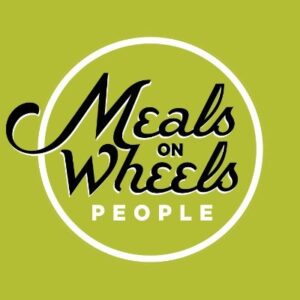We Have A Winner!
You voted, the votes are tallied, and our $1000 winner is…
Your referrals to family and friends are the biggest compliments we receive, and they keep the doors of our shop open. To say thanks, our Referral Reward program makes a donation to the non-profit group of your choice for each new client you send. We think it’s a better way to say ‘thanks’ than an oil change discount, and it ‘spreads the love’ across our whole community. We started Referral Reward in 2014, and we’re proud to say that this years’ $1000 award nudged us over $35,000 donated to the groups our clients care most about! And the winner is…
Wait, wait, wait. Before we announce this years’ winner, here’s a look at our Referral Reward Program in case you aren’t familiar with it already…
How Referral Reward works
 The person you refer must have a 15-years-old-or-newer vehicle of a type we service. Sorry, but our 15-years-old-or-newer policy still applies, and we can’t help with their Lamborghinis or semi-trucks. (We should remind you that the “15-years-old-or-newer” restriction applies ONLY TO NEW CLIENTS. If you’re an existing client and we’ve been servicing YOUR older vehicle, we’ll gladly continue to do so!)
The person you refer must have a 15-years-old-or-newer vehicle of a type we service. Sorry, but our 15-years-old-or-newer policy still applies, and we can’t help with their Lamborghinis or semi-trucks. (We should remind you that the “15-years-old-or-newer” restriction applies ONLY TO NEW CLIENTS. If you’re an existing client and we’ve been servicing YOUR older vehicle, we’ll gladly continue to do so!)- For each new client you refer to us we’ll donate 20% (up to $50) of the qualifying purchases (sorry, but tires, batteries, and oil changes don’t count) from their first invoice to the non-profit group of your choice.
- You can pick any group or organization you’d like. We prefer to give to 501c3 groups, but that’s not required. They can be political, social justice, environmental, recreational, religious, educational, or any other purpose YOU care about.
- At the end of the year our clients vote on a Yearly Winner from all the groups we donated to through the year. We make an additional donation of $1,000 to that group.
- Votes for the Yearly Award don’t have to come singly and don’t have to be from existing clients. You can coordinate your group to vote as a group, in fact, we have a sample letter you might want to use to tell them about the program.
- We prefer (but don’t require) donations to smaller groups. Big groups like the Red Cross, Mercy Corps, or Oregon Food Bank do amazing work, but our donations aren’t huge (max $50) and may get lost in the noise of their bigger donations. Smaller, usually local, groups don’t have the operating budgets or ability to go fund hunting, and $50 to these groups can be a huge boost. We’ll gladly donate to these larger groups throughout the year, but we restrict our Yearly Award to the smaller groups where $1000 will make the biggest difference.
Are there groups you WON’T donate to?
- We reserve the right to say ‘no’ to any group for any reason, but we’ve only rarely had to do it. If for ANY reason we decide not to accept them we’ll have you pick another group, and in the UNIMAGINABLE situation that we couldn’t find ANY group you wanted to give to then we’d turn your Referral Reward into an in-shop credit for future services. Like we said, our goal is to say thank you by giving to the people YOU think need it most.
- We won’t donate to a group that WON’T ACCEPT our donation. Several clients wanted us to donate to Bernie Sanders but the campaign doesn’t accept corporate donations and Tom Dwyer Automotive Services is a corporation. We found a ‘support Bernie’ group instead that worked out even better… one client is now an active member of the group!
- We won’t donate to a group if we CAN’T FIND them. One client wanted to donate to a small relief group in Nigeria (which sounds like a scam, but turned out not to be). After several attempts over about two months we gave up and donated to Mercy Corps instead. International donations can be tricky. We’ll try if you want but we’ll recommend a US-based (or at least large and well-known international) charity instead.
- No one’s ever asked and we doubt our clients ever would, but we won’t donate to hate groups. No KKK, Proud Boys, Nazis, or suchlike. If you want to pick one of these groups then you can go pound sand. We’ll give you a coupon for an oil change at a Quicky Lube (because we’re still grateful for your referral) but we don’t want your business and you’ll never hear from us again.
Why haven’t I gotten a Referral Reward? I’ve referred lots of people!
First, we’d like to apologize because we’d love to be able to thank you individually, but we don’t always know who’s Referred. The only way we know how a new client found us is asking them on their first visit, and we use that answer as their Referral source. While they may have first heard about us through you, they may tell us “Web search” or “convenient location” when we ask, and then we don’t know there’s a Reward to issue.
Stop toying with me! WHO WON THE YEARLY AWARD?!!
 You’re right, you’ve waited long enough. Our 2022 Referral Reward Yearly Award goes to… MEALS ON WHEELS! So let’s learn about our latest Referral Reward winner and the good work they do…
You’re right, you’ve waited long enough. Our 2022 Referral Reward Yearly Award goes to… MEALS ON WHEELS! So let’s learn about our latest Referral Reward winner and the good work they do…
How well do you know Meals on Wheels?

Tom Dwyer Outreach Advisor Charles Letherwood presents a ridiculously oversized check to Meals On Wheels Chief Development Officer Kevin Carrillo
While most people know that Meals on Wheels exists, we hear a few common misperceptions about what Meals on Wheels does and how the program works. Take the following quiz to test your knowledge about Meals on Wheels…
Meals on Wheels are prepared fresh in local kitchens by professional, licensed caterers.
A. True B. False
You have to be elderly to receive Meals on Wheels.
A. True B. False
If you sign up for Meals on Wheels, you can only receive them daily, Monday through Friday.
A. True B. False
You can receive meals on a temporary basis, even for just a week.
A. True B. False
Meals on Wheels is only available to those who can’t afford to cook for themselves.
A. True B. False
Meals on Wheels is a religious organization.
A. True B. False
Answers:
- True.
2. False. Meals are available to anyone who faces challenges with preparing healthy, nutritious food on a regular basis. This includes adults with temporary or permanent disabilities.
3. False. Recipients can elect to receive meals on certain days of the week, or receive frozen meals delivered once a week.
4. True.
5. False. There is no income requirement for receiving meals. Programs are available to help those who face challenges in affording the cost of meals.
6. False, though many religious organizations support the work of Meals on Wheels programs in a variety of ways. Your own religious affiliation has no bearing on your ability to receive Meals on Wheels.
The start of Meals on Wheels
Meals on Wheels People was founded in 1969 by three caring women, Jean Wade, Martha Shull and Cay Kreiger, who saw a need in the community that was not being met. They gathered in the basement of the Lincoln Street Methodist Church in February 1970 to serve a hot lunch to about a dozen seniors and then delivered 14 Meals on Wheels on paper plates wrapped in newspaper.
Today the Meals on Wheels People produces 7,300 nutritious meals four days each week in a 14,000-square-foot commercial kitchen located in the heart of Multnomah Village. Meals are then delivered to dozens of dining centers throughout Multnomah, Washington and Clark counties where they are served at noon to older adults in center dining rooms or sent out as Meals on Wheels to homebound older adults.
 What we do
What we do
Meals on Wheels America is the leadership organization supporting the more than 5,000 community-based programs across the country that are dedicated to addressing senior isolation and hunger. This network serves virtually every community in America and, along with more than two million staff and volunteers, delivers the nutritious meals, friendly visits and safety checks that enable America’s seniors to live nourished lives with independence and dignity. By providing funding, leadership, education, research and advocacy support, Meals on Wheels America empowers its local member programs to strengthen their communities, one senior at a time.
We’re fond of saying Meals on Wheels provides more than just a meal. Healthy food is definitely important for those who get Meals on Wheels, but for many, the daily visit from a friendly volunteer is just as valued. There are plenty of anecdotes to back this up ranging from volunteers changing light bulbs for meal recipients to those who call 911 when a meal recipient doesn’t answer the door because of a fall.
Serving the most vulnerable
As a rule, Meals on Wheels programs serve anyone who could benefit from the service. Interested people can enroll whether they lack access to nutritious food or simply can benefit from the convenience of having healthy food delivered daily to alleviate any problems they might have with preparing healthy meals. Meal recipients do not have to demonstrate any sort of financial hardship to receive meals, but the More than Meal study showed that those who request meals are significantly more vulnerable than the senior population as a whole:
Our effect is quantifiable
While the value volunteers bring to meal recipients in the form of a friendly visit was no secret to us, Meals on Wheels America recently conducted a scientific study to see whether this extra service provided by Meals on Wheels was quantifiable. The More than a Meal Research Study also examined health outcomes related to the daily delivery of nutritious food. According to the study, seniors who received daily meals showed improvements in categories related to both health and quality of life. Those who received daily meal delivery demonstrated the following outcomes compared to those who did not receive meals or received frozen deliveries on a weekly basis:
-
- Improved mental health, specifically decreases in depression and anxiety
- Improved physical health
- Reduced likelihood of falls
- Reduced feelings of isolation and loneliness
- Less worry about being able to remain living at home
- Increased feelings of safety
- A higher likelihood of eating healthy
“Bringing the combination of both nutrition and social interaction is what our local Meals on Wheels programs were founded on,” says Patrick Rowan, Metro Meals on Wheels executive director. “While it certainly wasn’t a surprise to see the conclusions of this study, it’s great to know that the tireless work of more than 12,000 volunteers is not only appreciated by our meal recipients, but scientifically proven to have a positive effect on health and well-being.”
Volunteers make it happen
Volunteers are the heart and soul of the Meals on Wheels People and we depend on more than 200 people every day to help prepare and deliver meals at the centers and to deliver Meals on Wheels. The volunteer with the friendly smile and hot meal is often the only person some of our homebound seniors will see on an average day. Find out more about volunteer opportunities.
The problem of elder hunger
Today, the average life expectancy is at a record high of 79 years. As we get older, even the most independent among us may experience physical declines or financial hardship that strips away our independence. Add to that an increase in geographic mobility of our families, and the result is millions of seniors left behind, hungry and alone. And while hunger and isolation can affect anyone with limited mobility and declining health, financial strain makes them much worse nearly 7.4 million seniors have incomes below the poverty line. That’s an income of $240 a week or less, which, after housing, utility and medical expenses, leaves very little for food.
Older adults living in poverty are nearly twice as likely as those living above the poverty level to have limitations in their ability to live independently. Hunger and social isolation not only jeopardize the health and well-being of older adults; they also place a significant strain on our country’s healthcare system and economy. Federally supported nutrition programs are designed to meet the needs of older adults, yet these successful public-private partnerships remain significantly underfunded.
Could you or someone you know benefit from receiving Meals on Wheels? You can learn more here. If you’d simply like to support your local Meals on Wheels programs, you can sign up to volunteer or donate.











